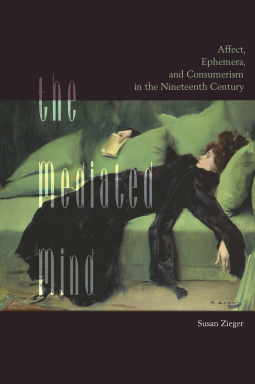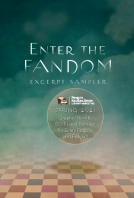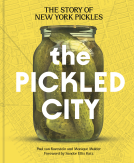
The Mediated Mind
Affect, Ephemera, and Consumerism in the Nineteenth Century
by Susan Zieger
This title was previously available on NetGalley and is now archived.
Send NetGalley books directly to your Kindle or Kindle app
1
To read on a Kindle or Kindle app, please add kindle@netgalley.com as an approved email address to receive files in your Amazon account. Click here for step-by-step instructions.
2
Also find your Kindle email address within your Amazon account, and enter it here.
Pub Date Jun 05 2018 | Archive Date Apr 30 2018
Talking about this book? Use #TheMediatedMind #NetGalley. More hashtag tips!
Description
Available Editions
| EDITION | Other Format |
| ISBN | 9780823279838 |
| PRICE | $33.00 (USD) |
| PAGES | 256 |
Average rating from 8 members
Featured Reviews
 Leslie G, Book Trade Professional
Leslie G, Book Trade Professional
Written in kind of cliched language, the insights are far between but the book serves as a good and solid, uncritical perhaps, discussion of links loosely made between media styles and tropes and sociological trends. Easy connections are made in slightly gee-whiz style and the language us sometimes tangled up with phrases deriving from well-worn ideas in other fields If someone knew little about the field, and were attracted, it would certainly have value to wake them up, and get them to look closer - and that is important. Well intentioned and readable, accessible enough.
 Librarian 431790
Librarian 431790
An interesting subject for a well written books full of interesting facts and information. It is a very good book if you don't know a lot about the subject.
Entertaing and informational.
Many thanks to Netgalley and Fordham University Press
 Anna B, Reviewer
Anna B, Reviewer
It’s readable and an interesting topic, but it is bone dry stating of facts with little insight. The breadth of topics and curious facts make it worth reading, but I had hoped for a little more. It’s a good source material for someone to later use in a research paper with a strong point of view.
 Sandra B, Reviewer
Sandra B, Reviewer
The Mediate Mind was not really my type of book. Although I enjoyed the subjects covered, I found that the way the facts were told was boring like an encyclopedia when just read straight through. I would have liked the book to be less academic and more lifestyle in writing.
I couldn't give this book more than two stars as it didn't hold my attention and I had a hard time wanting to finish it although i did.
A fascinating glimpse into the past to understand the present. We like to pretend that television and smartphones are the harbingers of doom for our attention span and gateways to obsessive behavior, yet our instant gratification, acquisitive, consumerist nature has been there all along, just waiting for faster and faster means of delivery--of goods, of information, of experience.
The Mediated Mind is an academic treatise on the interrelationships between media and society and how it affects and drives consumerism. The book specifically deals with the impact of printed media and ephemera - cheap printed media such as magazines, cigarette cards, etc - from the 19th century onward and postulates a direct link between the early mass-print market and today.
Two details going into the review. My grandfather was a Polish Jew who came to the USA without prior working knowledge of English. He learnt English by reading comic books, and inculcated the same love of comic books in my father. I am, thus, a third generation comic book and general ephemera nerd. I am also a keen fan of sociology and the impact of media. I am especially interested in how control and spin in the media relates to resistance (or passivity) in our society.
I remember asking my grandfather over and over (and over) how the holocaust could possibly have happened. His answer was that nobody knew what was going on, and that demanding to know was very dangerous. The control of information was critical to controlling the population. Anyhow, the point is that this book examines the direct line between printed media and society and extrapolates to our current day daily media overload and how it affects our own collective psyche.
This book was emphatically not an easy read. The author's expository prose is very academic and the text is written formally with exhaustive citations and cross references. The author follows a fairly rigid formula. In the introduction, tell the reader what you're going to tell them, use the body of the exposition to tell them in more detail, and in the conclusion, tell them what you told them.
The introduction takes up roughly 10% of the page content and discusses what is covered in the book. The body of the book (~80%) deals with temperance ephemera and tracts, tobacco and cigarette cards - and the driving of 'addiction' to collecting and acquisition, our subconscious (Rorschach blots among other things), along with mass culture.
The final chapter draws interesting comparisons between the 19th century everyman and our modern (western) everyman; still largely ignorant, crass, willfully uneducated, politically repugnant and/or naive.
The conclusion is followed by a whopper of a footnote/reference section with citations.
I've mentioned a couple of times that this book is a very dry academic read. I read every word and I'm still not 100% convinced it's not an elaborate joke on the pretentiousness of academia. I found it worthwhile, but I would definitely recommend it only readers who are especially interested.
Five stars, but only for readers who are especially invested in the material. (Extra points for being an original treatise on a subject which doesn't have a lot of academic representation).
Stats: 256 pages, e-Textbook, Hardback, softbound
Author: Susan Zieger, PhD
Publisher: Fordham University Press
Available: 5th June, 2018
Readers who liked this book also liked:
Silvia Moreno-Garcia
Historical Fiction, Literary Fiction, Sci Fi & Fantasy
Rachel Joyce
Historical Fiction, Literary Fiction, Women's Fiction
Brian Soonho Yoon
Children's Nonfiction, Crafts & Hobbies
Sam Morrison
Children's Nonfiction, Crafts & Hobbies, Outdoors & Nature


















